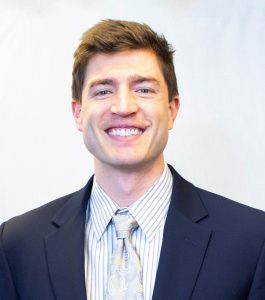Professionals from athletes to business executives benefit from coaching in their careers. So why not surgeons?
“Surgical culture has traditionally resisted the concept of coaching,” said Jason C. Pradarelli, MD, MS, a former Safe Surgery Fellow at Ariadne Labs and a general surgical resident at Brigham & Women’s Hospital. Yet “surgical coaching is a way for surgeons to continue to improve throughout their careers so that they can provide the best care possible to patients.”

Pradarelli decided to explore this paradox during his Ariadne Labs Safe Surgery fellowship from June 2018 to June 2020. He spearheaded a study with fellow researchers that examined the impact of Ariadne’s Surgical Coaching for Operative Performance Enhancement (SCOPE) program, a quality improvement intervention that helps hospitals create and implement surgical coaching programs.
SCOPE aims to enable every surgeon to pursue surgical excellence through continuous professional development and performance improvement. Under SCOPE, coaches observe coachees during surgery, and debrief after the procedure to discuss opportunities for improvement on technical, non-technical, and teaching skills.
Pradarelli, now Medical Director at The Academy for Surgical Coaching, acknowledges that it may seem surprising that surgery has not historically emphasized coaching, even though the field emphasizes rigorous teaching and mentoring. Coaching differs from mentoring; it involves a partnership between two surgeons that uses collaborative analysis, constructive feedback, and action planning to achieve professional development goals that they identify; surgeons become their own agents of change. Coaching as a skill is not generally taught in medical school, Pradarelli said.
“The emphasis is on a partnership; neither partner in the engagement has greater status and so it’s very anchored on equality,” he said. Certainly surgeons can use self-reflection and self-assessment for improvement; coaching “is a much more nuanced skill. We prefer either video based or direct observation so that there’s a tangible real life scenario that the surgeons can discuss together.”
To understand the effects of the coaching program, Pradarelli and colleagues conducted a qualitative analysis of SCOPE at four U.S. academic medical centers from December 2018 to October 2019, with 46 practicing surgeons. Surgeons were assigned to a single coaching role—either coach or coachee. Coaches accompanied coachees to procedures and they met to review afterward. Researchers conducted and analyzed exit interviews with participants and administered a post-coaching survey.
A paper, published in JAMA Surgery in October 2020, used this data to explore how coaching programs can be implemented in ways that align with surgical culture. The authors, which included Pradarelli and Ariadne researchers Steven Yule, PhD, Nikhil Panda, MD, Kurt Lowery, and Douglas S. Smink, MD, MPH, found that coaches and coachees generally agreed on key implementation recommendations for surgical coaching.
Notably, the paper concluded that the first coaching session was of particular importance. Participants who reported a favorable SCOPE experience tended to have an excellent first session with a coaching partner in the same clinical specialty, while those. who described suboptimal first sessions with less clinical overlap were more likely to have negative responses.
“The surgeons who had knocked it out of the park on their first sessions were the ones who tended to rate their sessions highly throughout the rest of the program,” Pradarelli said. “That first session really set the tone for the remaining sessions.”
This study underscored the importance of having an excellent first coaching session, matching coaching partners in the same clinical specialty, and being transparent about intentions. These findings can help organizations implement effective surgical coaching programs.
Another paper on SCOPE appeared in Surgical Endoscopy in July 2020. Surgeons reported value in peer coaching and qualitative improvements in surgical skill (particularly non-technical skills like teamwork and communication), although quantitative improvements in skill ratings were not detected.
The Academy for Surgical Coaching now aims to launch surgical coaching on a national platform, Pradarelli said. “Other high performing professions — whether it’s athletics, business executives, education — have coaches. With something as important as patients’ health and well-being, why wouldn’t surgeons have a coach to help improve their performance and provide the best care possible?”


